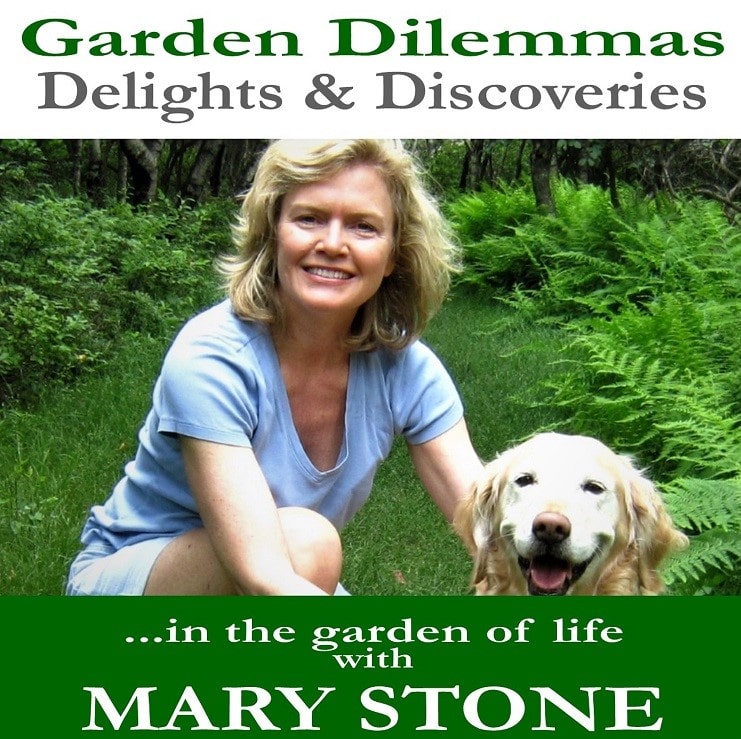Hello fellow readers, The seasons of gardening relate to the cycles in our garden of life. In the early season of life, we don’t have choices. Like seeds, we live with what we were handed and where we landed. We are born into a family, a culture, and a country where we will grow.
As we grow older, we can choose where we’d like to dig in our roots and how we’d like to live, love, work, and hopefully serve others. For some, overcoming hardships from childhood seems bigger than life; how we admire those that do.
We make the best of where we are currently rooted.
In planning a garden, we can decide where we would like it, choose the best spot, and make the best of where we are currently rooted. Sometimes, raised beds, garden pots, or grow bags work best, allowing a workaround for unfavorable conditions or limited space.
We should test the soil first. The balance, the pH, tremendously impacts what we can plant, along with the amount of sun versus shade, planting zone, moisture, wind, and the impact of wildlife, such as deer, to consider. Folks try to change the soil or environment to force the plants they wish for. But forcing what’s unnatural never seems to work. Just like ignoring our innate nature and who we are as people never do.
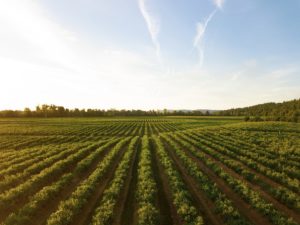
Photo by Dan Meyers on Unsplash
Unnatural chemicals work much like an addiction.
Agricultural practices have taught farmers to plant in rows creating monocultures that incite maintenance. They often use chemicals to prohibit weeds and fertilize, which ultimately affects the soil, essentially killing it, thereby requiring more chemical supplements. It works much like an addiction.
These unnatural interventions upset the balance of things, just as greed, anger, and the need to be right do, often leading to violence. Thankfully, more and more are becoming aware of the damage, adopting kindness and organic practices in our gardens. Some shift to protocols such as No-Till and Three Sisters Gardening to nurture the soil and inhibit weeds. Working as a partner with our dear earth brings us closer to God, or source, because in the world, all things are rooted, and so are we. We are all one.
Then comes planning for the future while living in the presence of what is available to plant in your garden of life. You’ll make mistakes. But from them comes growth. It’s all part of the plan.
We choose combinations of plants or vegetables we want to eat that get along well together. Just as we choose partners, complementing each other doesn’t mean being the same. Each of us is unique. Sometimes opposites work well together like plants, nurturing each other, supporting each other, and helping each other through disease, loss, and growth.

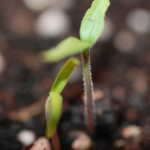 You can’t rush seeds.
You can’t rush seeds.
We plant our seeds and patiently wait. You can’t rush seeds to sprout; when they do, our feathered or furry friends pilfer some. But that’s okay; it’s kind to share with our neighbors.
We protect our babies’ growth the best we can, and joy abounds when we see the first blooms. Soon busy bees, butterflies, and other pollinators, such as ants and beetles that folks overlook or cast aside as ugly, do their magic.
When we come of age —we graduate high school and decide our transition into adulthood. Some go off to college or trade school; some of us cook Kentucky Fried Chicken first to pay our way there (smile). Others go right to work. The ultimate teacher is life experiences. That coupled with the wisdom gained from the rhythms of nature.
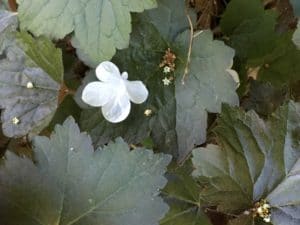
Palace Purple Coral Bells with an angel from above. (Doublefile Viburnum Angels)
The wisdom of nature in the garden of life
Yes, Mother Nature can throw a curve ball; the same is true in life. We may fall for partners and recreate familiar childhood patterns we hoped to forgo (some of us are a slow study). There is no shame in making mistakes. From them comes growth.
We’ve spoken about the Lesson of the Leaf and how we have no control over the currents in life. Letting go of hurtful people we love can be challenging. But life becomes more manageable and healthier once we find the courage to trust, let go, and let God like a leaf in the water.
Our lives can become overwhelmingly busy, or we become sidelined in caring for children or failing loved ones and can’t maintain things the way we’d like. But gardens are forgiving, and nature heals wounds as we can heal our hearts.
As the summer unfolds, foliage is frequently noshed upon, which can cause worry—and sometimes devastation occurs from insects that unintentionally arrived here from other countries with no predators for checks and balances. I like to think Mother Nature will sort these things out.
Sometimes fruits don’t live long enough to ripen.
Fruits ripen, though they, too, are frequently eaten by critters. But they have a right to live, too. Think of it as sharing the bounty with others.
Sometimes fruits, vegetables, and flowers don’t live long enough to ripen fully. Sometimes disease takes them early. The same is true of trees and shrubs … and family members and friends.
We harvest our bounty until the season of growth ends, share some, and maybe freeze or can extras for winter. We gather seeds and save them for next year’s growth, leaving some for the birds.
And leave behind the love that we grew…
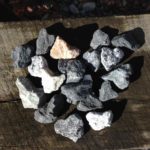
Link to the story of Bill’s Stones
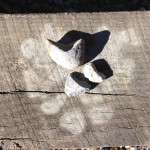
In late Fall, we tidy our gardens for a long winter’s nap though our gardens don’t rest; the cycle of life never ends. Perennial and woody plants transition to dormancy, but they aren’t dead. Roots are active, and the fallen leaves and spent plant material decompose, putting nutrients back in the soil just as we leave behind the love we grew.
In the winter of our lives, we rest from gardening while nature prepares our world for our next season of growth. It’s the cycle of the seasons and the cycle of our garden of life that never ends.
Garden Dilemmas? AskMaryStone@gmail.com and your favorite Podcast App.
There’s more to the story in Episode 93 of the Garden Dilemmas Podcast:
Link to related stories you’ll enjoy:
No-Till Gardening and Starting a No-Till Garden
I think you’ll enjoy a book by Robin Wall Kimmerer titled Braiding Sweetgrass: https://www.robinwallkimmerer.com/.


